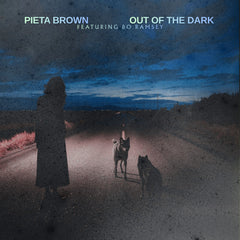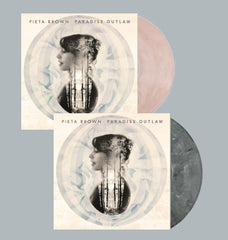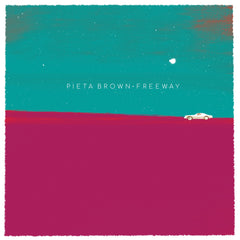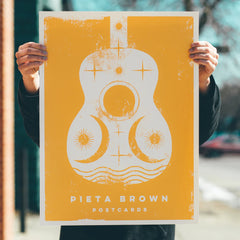
Hailed as a “self-styled poetess, folk goddess, and country waif” by the BBC, Pieta Brown first came to international prominence with the release of her self-titled debut in 2002. Since then she has released multiple highly critically acclaimed albums, EPs and singles, with much attention being paid not only to her distinct sound and style, but also the power of her singing and songwriting, including fan favorite, Paradise Outlaw, which Bon Iver mastermind Justin Vernon has called his “favorite recording made at our studio.”
Brown has toured worldwide with artists such as John Prine, Amos Lee, Brandi Carlisle, JJ Cale, Ani DiFranco, Mavis Staples, and Calexico among others. She has co-written songs with and made guest appearances on albums by Calexico, Amos Lee, Howe Gelb, and Iris Dement. Brown’s most recent album Freeway was co-produced by S. Carey and earned widespread critical acclaim from NPR Music, Stereogum, Billboard, FLOOD, Paste, American Songwriter, Folk Alley, and Relix. She followed that shortly after with the bold and experimental single “Follow You” as well as an EP/digital triptych collaboration recorded at Justin Vernon and Aaron Dessner’s HIVER Festival called We Are Not Machines featuring Ani DiFranco, S. Carey, Holland Andrews, Jenn Wassner, and more.
In 2022 Pieta further expanded her musical prowess by recording and releasing an album of original cinematic instrumentals, The Less I Needed The Better I Felt, under the moniker Sylvee & The Sea featuring John Convertino (Calexico), Don Was, and CJ Carmerieri (Carm). She also co-produced Iris DeMent’s most recent album Workin’ On A World, which has garnered praise from Rolling Stone and The New York Times among many others. Along the way she has earned respect and accolades for her talents in soundtrack design, videography, and photography as well; Brown’s photographs have appeared in gallery shows and on numerous album covers for fellow artists. Continually revealing new layers as a songwriter, singer, musician, producer, visual artist and performer, Brown is being recognized as a true multi-hyphenate and one of modern Americana’s true gems.
“Pieta Brown sings about love and trust…“In my heart you sing clear and bright / It makes me feel like things will be all right,” she intones, convincing both herself and anyone listening.” - The New York Times
“A style and a sensuality that’s all her own…." - Pop Matters
“Brown’s vocals couldn’t be more stellar if she tried.” - Stereogum








